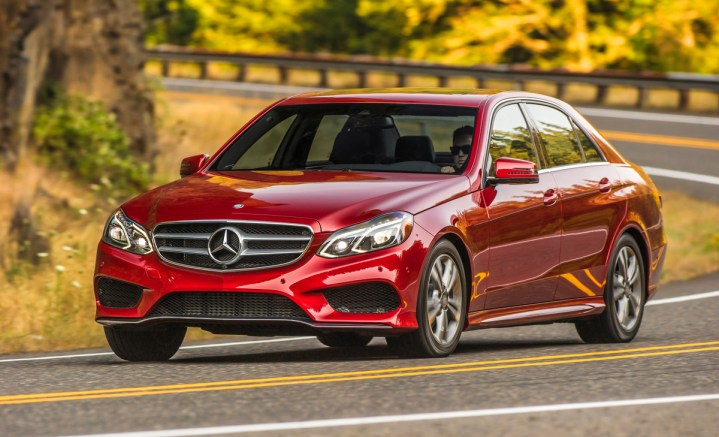
Amidst the hubbub stirred up by Volkswagen’s “dieselgate” scandal, the European Federation for Transport and Environment (T&E) has released the 2015 Mind the Gap report, which documents the discrepancies between auto manufacturer fuel economy/C02 emissions ratings and day-to-day results.
According to T&E, certain models from Mercedes-Benz, BMW, and Peugeot consume up to 50 percent more fuel than the official numbers indicate. More specifically, the Mercedes A-Class, Mercedes C-Class, Mercedes E-Class, BMW 5 Series, and Peugeot 308 are accused of being overly optimistic with their efficiency ratings. The report is based on data gathered by the International Council for Clean Transportation.
“The gap between official and real-world performance found in many car models has grown so wide that it cannot be explained through known factors including test manipulations,” reads T&E’s statement. “While this does not constitute proof of ‘defeat devices’ being used to fiddle fuel economy tests, similar to that used by Volkswagen, EU governments must extend probes into defeat devices to CO2 tests and petrol cars too.”
According to T&E, inaccurate fuel consumption information is not a new issue, but it’s more prevalent today than ever before. In 2001, the disparity between manufacturer fuel economy/CO2 ratings and real-world performance was around 8 percent, but it grew to a bloated 40 percent in 2014. The gap “has become a chasm,” the group says, and it estimates it could grow to nearly 50 percent by 2020 if no action is taken.
“Like the air pollution test, the European system of testing cars to measure fuel economy and CO2 emissions is utterly discredited,” said Greg Archer, Clean Vehicles Manager at T&E. “The Volkswagen scandal was just the tip of the iceberg and what lies beneath is widespread abuse by carmakers of testing rules enabling cars to swallow more than 50 percent more fuel than is claimed.”
The Europeans are not alone in this matter. In 2012, the EPA found that Hyundai and Kia had artificially inflated fuel economy ratings for a large number of their 2011-2013 model year vehicles, in some cases by up to 6 mpg. Both brands issued reimbursements to customers with applicable models.
Editors' Recommendations
- The BMW i4 is more luxurious than the Tesla Model S, and costs way less
- Mercedes-AMG GT 73 plug-in hybrid will unleash 805 hp, report says



